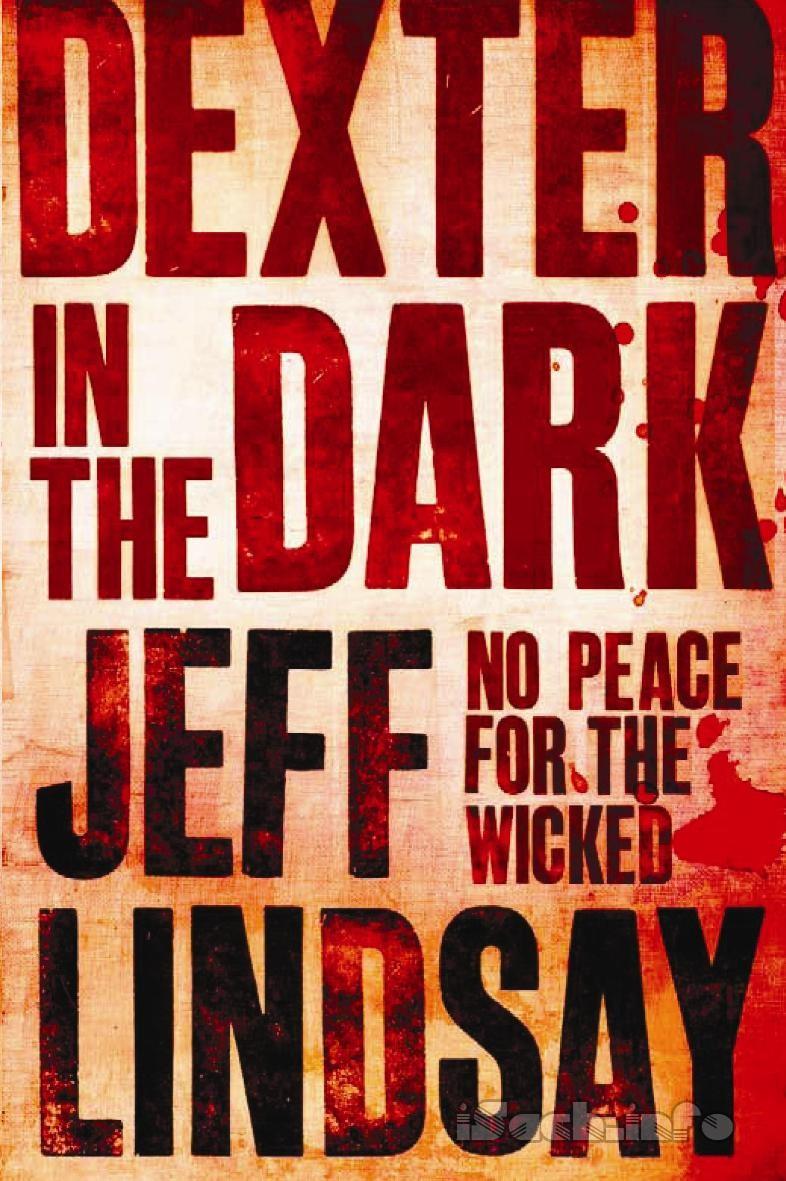Chapter 37
A
S I KNOW VERY WELL, THE WORLD IS NOT A NICE PLACE. There are numberless awful things that can happen, especially to children: they can be taken by a stranger or a family friend or a divorced dad; they can wander away and vanish, fall in a sinkhole, drown in a neighbor’s pool—and with a hurricane coming there were even more possibilities. The list is limited only by their imaginations, and Cody and Astor were quite well supplied with imagination.But when Rita told me they were gone, I did not even consider sinkholes or traffic accidents or motorcycle gangs. I knew what had happened to Cody and Astor, knew it with a cold, hard certainty that was more clear and positive than anything the Passenger had ever whispered to me. One thought burst in my head, and I never questioned it.
In the half a second it took to register Rita’s words my brain flooded with small pictures: the cars following me, the night visitors knocking on the doors and windows, the scary guy leaving his calling card with the kids, and, most convincingly, the searing statement uttered by Professor Keller: “Moloch liked human sacrifice. Especially children.”
I did not know why Moloch wanted my children in particular, but I knew without the slightest doubt that he, she, or it had them. And I knew that this was not a good thing for Cody and Astor.
I lost no time getting home, swerving through the traffic like the Miami native I am, and in just a few minutes I was out of the car. Rita stood in the rain at the end of the driveway, looking like a small, desolate mouse.
“Dexter,” Rita said, with a world of emptiness in her voice. “Please, oh God, Dexter, find them.”
“Lock the house,” I said, “and come with me.”
She looked at me for a moment as if I had said to leave the kids and go bowling. “Now,” I said. “I know where they are, but we need help.”
Rita turned and ran to the house and I pulled out my cell phone and dialed.
“What,” Deborah answered.
“I need your help,” I said.
There was a short silence and then a hard bark of not-amused laughter. “Jesus Christ,” she said. “There’s a hurricane coming in, the bad guys are lined up five deep all over town waiting for the power to go out, and you need my help.”
“Cody and Astor are gone,” I said. “Moloch has them.”
“Dexter,” she said.
“I have to find them fast, and I need your help.”
“Get over here,” she said.
As I put my phone away Rita came splattering down the sidewalk through the puddles that were already forming. “I locked up,” she said. “But Dexter, what if they come back and we’re gone?”
“They won’t come back,” I said. “Not unless we bring them back.” Apparently that was not the reassuring remark she was hoping for. She stuffed a fist into her mouth and looked like she was trying very hard not to scream. “Get in the car, Rita,” I said. I opened the door for her and she looked at me over her half-digested knuckles. “Come on,” I said, and she finally climbed in. I got behind the wheel, started up, and nosed the car out of the driveway.
“You said,” Rita stammered, and I was relieved to notice that she had removed the fist from her mouth, “you said you know where they are.”
“That’s right,” I said, turning onto U.S. 1 without looking and accelerating through the thinning traffic.
“Where are they?” she asked.
“I know who has them,” I said. “Deborah will help us find out where they went.”
“Oh God, Dexter,” Rita said, and she began to weep silently. Even if I wasn’t driving I wouldn’t know what to do or say about that, so I simply concentrated on getting us to headquarters alive.
o O o
A telephone rang in a very comfortable room. It did not give out an undignified chirping, or a salsa tune, or even a fragment of Beethoven, as modern cell phones do. Instead, it purred with a simple old-fashioned sound, the way telephones are supposed to ring.
And this conservative sound went well with the room, which was elegant in a very reassuring way. It contained a leather couch and two matching chairs, all worn just enough to give the feeling of a favorite pair of shoes. The telephone sat on a dark mahogany end table on the far side of the room, next to a bar made of matching wood.
Altogether the room had the relaxed and timeless feel of a very old and well-established gentlemen’s club, except for one detail: the wall space between the bar and the couch was taken up by a large wooden case with a glass front, looking something like a cross between a trophy case and a shelf for rare books. But instead of flat shelves, the case was fitted with hundreds of felt-lined niches. Just over half of them cradled a skull-sized ceramic of a bull’s head.
An old man entered the room, without haste, but also without the careful hesitance of frail old age. There was a confidence in his walk that is usually found only in much younger men. His hair was white and full and his face was smooth, as if it had been polished by the desert wind. He walked to the telephone like he was quite sure that whoever was calling would not hang up until he answered, and apparently he was right, since it was still ringing when he lifted the receiver.
“Yes,” he said, and his voice, too, was much younger and stronger than it should have been. As he listened he picked up a knife that lay on the table beside the telephone. It was of ancient bronze. The pommel was curved into a bull’s head, the eyes set with two large rubies, and the blade was traced with gold letters that looked very much like MLK. Like the old man, the knife was much older than it looked, and far stronger. He idly ran a thumb along the blade as he listened, and a line of blood rose up on his thumb. It didn’t seem to affect him. He put the knife down.
“Good,” he said. “Bring them here.” He listened again for a moment, idly licking the blood from his thumb. “No,” he said, running his tongue along his lower lip. “The others are already gathering. The storm won’t affect Moloch, or his people. In three thousand years, we’ve seen far worse, and we’re still here.”
He listened again for a moment before interrupting with just a trace of impatience. “No,” he said. “No delays. Have the Watcher bring him to me. It’s time.”
The old man hung up the telephone and stood for a moment. Then he picked up the knife again, and an expression grew on his smooth old face.
It was almost a smile.
o O o
The wind and the rain were gusting fiercely but only occasionally, and most of Miami was already off the roads and filling out insurance claim forms for the damage they planned to have, so the traffic was not bad. One very intense blast of wind nearly pushed us off the expressway, but other than that it was a quick trip.
Deborah was waiting for us at the front desk. “Come to my office,” she said, “and tell me what you know.” We followed her to the elevator and went up.
“Office” was a bit of an exaggeration for the place where Deborah worked. It was a cubicle in a room with several others just like it. Crammed into the space was a desk and chair and two folding chairs for guests, and we settled in. “All right,” she said. “What happened?”
“They…I sent them out into the yard,” Rita said. “To get all their toys and things. For the hurricane.”
Deborah nodded. “And then?” she prompted.
“I went in to put away the hurricane supplies,” she said. “And when I came out they were gone. I didn’t—it was only a couple of minutes, and they…” Rita put her face in her hands and sobbed.
“Did you see anyone approach them?” Deborah asked. “Any strange cars in the neighborhood? Anything at all?”
Rita shook her head. “No, nothing, they were just gone.”
Deborah looked at me. “What the hell, Dexter,” she said. “That’s it? The whole story? How do you know they’re not playing Nintendo next door?”
“Come on, Deborah,” I said. “If you’re too tired to work, tell us now. Otherwise, stop the crap. You know as well as I do—”
“I don’t know anything like it, and neither do you,” she snapped.
“Then you haven’t been paying attention,” I said, and I found that my tone was sharpening to match hers, which was a bit of a surprise. Emotion? Me? “That business card he left with Cody tells us everything we need to know.”
“Except where, why, and who,” she snarled. “And I’m still waiting to hear some hints about that.”
Even though I was perfectly prepared to snarl right back at her, there was really nothing to snarl. She was right. Just because Cody and Astor were missing, that didn’t mean we suddenly had new information that would lead us to our killer. It only meant that the stakes were considerably higher, and that we were out of time.
“What about Wilkins?” I demanded.
She waved a hand. “They’re watching him,” she said.
“Like last time?”
“Please,” Rita interrupted, with a rough edge of hysteria creeping into her voice, “what are you talking about? Isn’t there some way to just—I mean, anything…?” Her voice trailed off into a new round of sobs, and Deborah looked from her to me. “Please,” Rita wailed.
As her voice rose it echoed into me and seemed to drop one final piece of pain into the empty dizziness inside me that blended in with the faraway music.
I stood up.
I felt myself sway slightly and heard Deborah say my name, and then the music was there, soft but insistent, as if it had always been there, just waiting for a moment when I could hear it without distraction, and as I turned my focus on the thrum of the drums it called me, called as I knew it had been calling all along, but more urgently now, rising closer to the ultimate ecstasy and telling me to come, follow, go this way, come to the music.
And I remember being very glad about that, that the time was here at last, and even though I could hear Deborah and Rita speaking to me it didn’t seem that anything they had to say could be terribly important, not when the music was calling and the promise of perfect happiness was here at last. So I smiled at them and I think I even said, “Excuse me,” and I walked out of the room, not caring about their puzzled faces. I went out of the building, and to the far side of the parking lot where the music was coming from.
A car was waiting for me there, which made me even happier, and I hurried over to it, moving my feet to the beautiful flow of the music, and when I got there the back door of the car swung open and then I don’t remember anything at all.



 ePub
ePub A4
A4